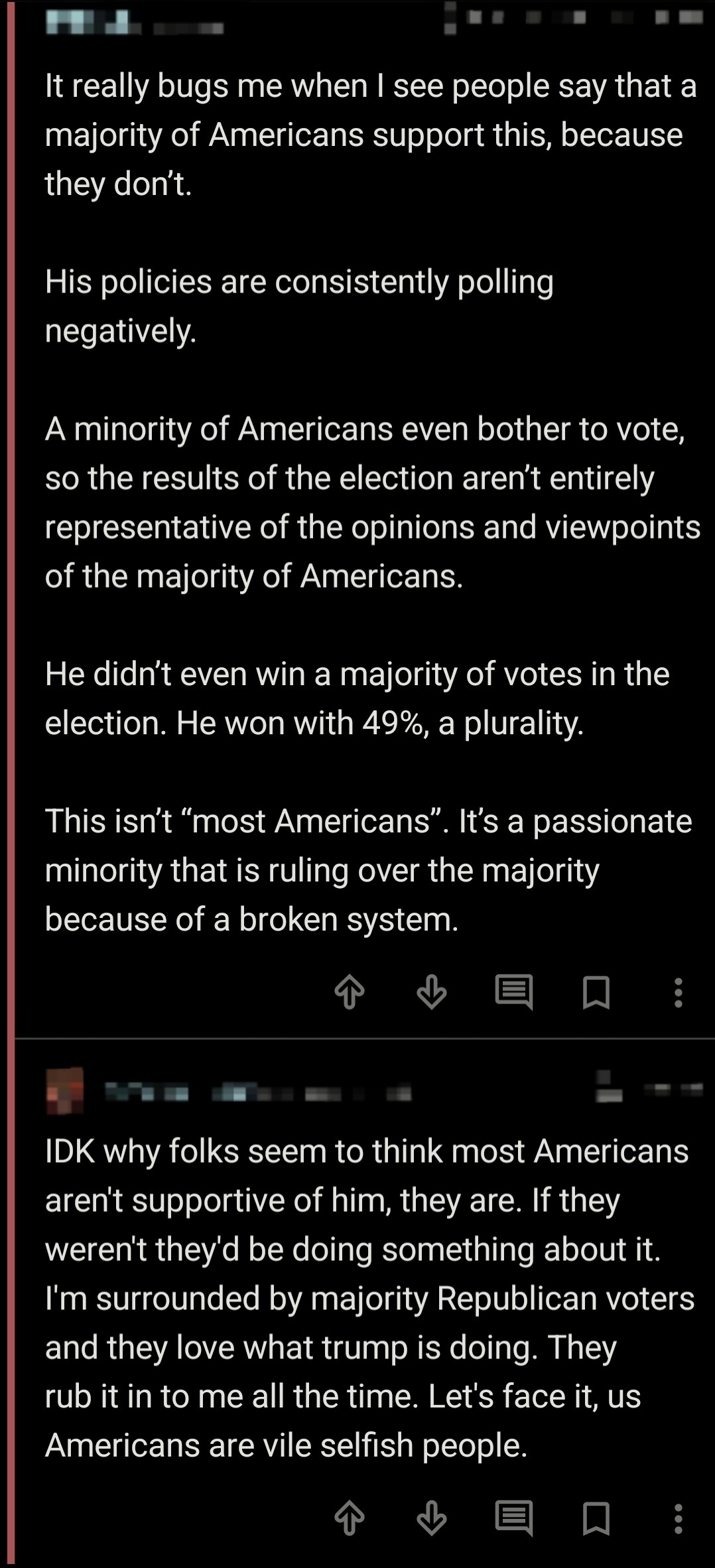Political Discussion and Commentary
A place to discuss politics and offer political commentary. Self posts are preferred, but links to current events and news are allowed. Opinion pieces are welcome on a case by case basis, and discussion of and disagreement about issues is encouraged!
The intent is for this community to be an area for open & respectful discussion on current political issues, news & events, and that means we all have a responsibility to be open, honest, and sincere. We place as much emphasis on good content as good behavior, but the latter is more important if we want to ensure this community remains healthy and vibrant.
Content Rules:
- Self posts preferred.
- Opinion pieces and editorials are allowed on a case by case basis.
- No spam or self promotion.
- Do not post grievances about other communities or their moderators.
Commentary Rules
- Don’t be a jerk or do anything to prevent honest discussion.
- Stay on topic.
- Don’t criticize the person, criticize the argument.
- Provide credible sources whenever possible.
- Report bad behavior, please don’t retaliate. Reciprocal bad behavior will reflect poorly on both parties.
- Seek rule enforcement clarification via private message, not in comment threads.
- Abide by Lemmy's terms of service (attacks on other users, privacy, discrimination, etc).
Please try to up/downvote based on contribution to discussion, not on whether you agree or disagree with the commenter.
Partnered Communities:
• Politics
• Science
view the rest of the comments

The main point of contention between the 2 comments is: is not voting despite being eligible an endorsement of the winner?
Context is king. For some places, sure, like in Japan the voter turnout is always around 40% and is typically seen as endorsement for the Japanese Liberal party that de facto rules the country for 70 years. But in the US, it is more nuanced than that. It could mean Americans who abstained don't like either candidates, or felt that federal policies won't affect their states and thus "Trump-proofed". Or for the staunchly Republican states, they feel that voting for presidential elections won't affect anything.
If Democrats really want to win the next presidential election, the party really needs to change and excite voters.
You can endorse the winner and not vote, or even the opposite, or vote for the winner. Whether or not you vote doesn’t take away your opinion on the results. It’s not really an issue that needs debating.
The research is out there on who non-voters are, why they don't/can't vote and what political opinions they have. Critics like OP and others in this thread just choose to ignore that and go with the narrative in their head.
This is a case where the outcome trumps process or rationale.
Regardless of whatever personal reason someone may have for not voting in the election, their lack of participation has allowed Trump to take power, leading to the global instability we see today.
They have therefore cosigned America's role in leading the world into this period of uncertainty.
Which is why America's standing in the world is about to diminish and the concept of the 'Western world' is growing increasingly fragile.
Non voters bear some responsibility for this, regardless of their personal views.
Which is why many outside the US put non voters and Trump voters in the same bucket. Both evil and apathy towards evil have the ability to do incredible harm, especially when paired.